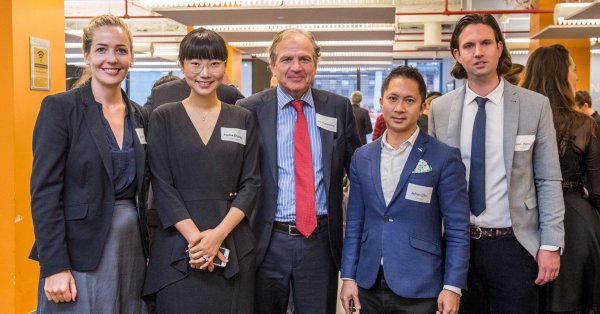A non-profit called the Social Alpha Foundation is crusading to use cryptocurrency donations as grants. The grants will be awarded to entities dedicated to projects related involving social impact and blockchain education.
Influential figures inside of the cryptocurrency world are finding themselves in the company of some of the world’s richest people.
In mid-October, Bitcoinist reported how the 2018 Hurun Rich List of China’s wealthiest included several employees from Bitmain. Together they command a combined wealth of nearly $9 billion.
Earlier in the year, a spokesperson from BitInfoChats estimated that between 20,000 to 200,000 people had become millionaires thanks to Bitcoin.
Some entities, like the Social Alpha Foundation (SAF) are working to attract cryptocurrency wealth in order to finance a range of projects related to social impact.

Focused on Ideas People Believe In
The SAF, founded in 2017, is dedicated to soliciting donations in virtual currency to be used as grants to different organizations. Currently, the non-profit has raised more than $1 million in less than a year and is supporting six projects, according to Forbes.
In a September interview with Breaker Magazine, co-founder SAF Nydia Zhang said the organization raises money from “the whales,” focusing on “crypto funds, ICOs, and high net worth individuals.” Zhang noted that fundraising targets are usually on the younger side.
Zhang says one of the goals of the SAF is to “cultivate a mindset at an early age to focus on social impact,” since the younger generation has access to tremendous wealth. According to Zhang, the SAF focuses the money it raises into two different categories.
One sees money being funneled to education-related work on blockchain’s social impact. Another has funds going towards applications focused on blockchain for social good projects.

Giving Out Money To Facilitate Social Change
The SAF’s website provides an overview of the grant process. Shortlisted applications for grants, which can range from $10,000 to $100,000, are placed in front of an experienced vetting committee who conduct interviews with those behind interesting proposals.
Money is dispersed across key milestones, with an upfront amount provided after an application is approved. According to the SAF, those awarded grants receive networking assistance within the wider blockchain community and lifetime support from the company.
So far, SAF grantees encompass a variety of different endeavors.

Aparna Krishnan, head of Education from Blockchain at UC Berkeley, used grant money to gave a range of lectures across Hong Kong in April to
Establish a meaningful partnership between the Berkeley and Hong Kong Blockchain communities.
The first grantee, Amply, is creating a digital identity system for pre-schools in South Africa. The idea, according to SAF’s website, is to give underprivileged children sovereign identification so they can gain access to good schooling and monetary support.
Facilitating Technology For Social Change
The SAF represents what is a growing endeavor to promote cutting-edge technologies like blockchain and cryptocurrency for projects related to social impact.
The Blockchain for Social Impact Coalition works to incubate and implement blockchain-based solutions to help tackle issues outlined in the UN’s Sustainable Development Goals.
Another company, Alice, endeavors to convince social organizations to run transparent projects with the help of its Ethereum blockchain. The idea behind making project performance public is to help interested donors identify promising efforts who can then turn funding into results.
Do you think blockchain and cryptocurrency can have a big impact when it comes to projects related to social change? Let us known in the comments!
Images and media courtesy of the Social Alpha Foundation, Shutterstock.











